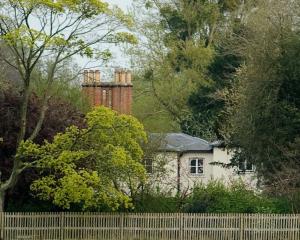
The queen, Prince William and his new bride Kate Middleton joined the rest of the royal family to celebrate Philip's birthday at Windsor Castle, one of the queen's residences, 40km west of London.
The royals arrived for the service in a fleet of limousines, scurrying into the church under umbrellas to protect them from the heavy rain.
Sportsmen, foreign royals, Prince Philip's godchildren and staff who have worked for the royal family were among the 750 guests invited to the church service at the chapel at Windsor Castle and to a reception.
The Reverend David Conner, who gave the church service, praised Philip for supporting his wife for six decades, and paid tribute to the work he did with charities.
Philip, also known as the Duke of Edinburgh, married the queen in 1947. He is the son of the late Prince Andrew of Greece and a great-great-grandson of Britain's Queen Victoria, giving him deep royal roots.
The tall prince, still with military bearing but his face now craggy with age, has been a familiar figure at his wife's side for decades. He has championed numerous charities over the years, but is advising the ones he heads to start planning an orderly transition as he plots the end of his working life.
Instead of acting as if he can continue the punishing pace of royal engagements, Philip, who turned 90 on Friday. has acknowledged that he is losing stamina. In a television interview to mark his milestone birthday last week, he said he was nearing his "sell-by date."
"I reckon I've done my bit. I want to enjoy myself for a bit now. With less responsibility, less rushing about, less preparation, less trying to think of something to say," he said.
"On top of that your memory's going, I can't remember names. Yes, I'm just sort of winding down."
On Friday the queen made her husband the Lord High Admiral of the Navy, giving him a centuries-old title she had held since 1964. Philip had been a prominent naval officer until he gave up his career to be at his wife's side when she became queen.
The awarding of the title was seen as a sentimental acknowledgement by the queen of her husband's sacrifice on her behalf.








